|
TV dramas and movie characters
analogized as adult children.
| <Criminal Minds> |
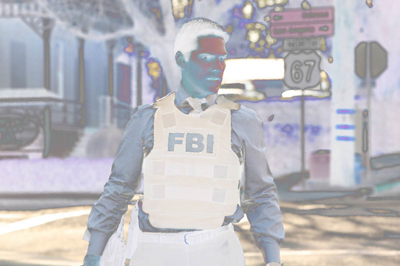 |
| Aaron Hotchner (Thomas Gibson), Former BAU Unit
Chief and Senior Supervisory Special Agent |
|
|
Criminal Minds is an American police procedural
crime drama television series created by Jeff Davis,
and is the original show in the Criminal Minds franchise.
It premiered on September 22, 2005, on the broadcast
network CBS, and is produced by The Mark Gordon Company,
in association with CBS Television Studios and ABC Studios
(a subsidiary of The Walt Disney Company). Criminal
Minds is set primarily at the FBI's Behavioral Analysis
Unit (BAU) based in Quantico, Virginia. In accordance
with the show's plot, Criminal Minds differs from many
procedural dramas by focusing on profiling the criminal,
called the unsub or "unknown subject", rather
than the crime itself.
The show has an ensemble cast that has had many cast
member changes since its inception. Thomas Gibson, Matthew
Gray Gubler, A. J. Cook, and Kirsten Vangsness are the
only actors to have appeared in every season.
The series follows a group of FBI profilers who set
about catching various criminals through behavioral
profiling. The plot focuses on the team working cases
and on the personal lives of the characters, depicting
the hardened life and statutory requirements of a profiler.
The show spawned two spin-offs: Criminal Minds: Suspect
Behavior (2011) and Criminal Minds: Beyond Borders (2016-).
On May 6, 2016, CBS renewed the show for a twelfth season,
which premiered on September 28, 2016.[1][2]
(Quote from wikipedia)
|
| <Prison Break> |
 |
 |
| Wentworth Miller as Michael Scofield |
Robert Knepper as Theodore "T-Bag" Bagwell |
|
The Tattoo on Michael Scofield's
body included the plan to break Lincoln out of Fox River
and. ... be used to highlight the prison blueprints in
the tattoo, the contours and lines of the tattoo were
drawn to resemble the map as much as possible.
Despite being despised by the other convicts for his
heinous crimes and affiliation with the Alliance for
Purity, T-Bag is quite eloquent and many women find
him charming. Knepper comments
that, "T-Bag's not crazy. He knows exactly what
he's doing. He's not going to make himself stupid."[5]
In a separate interview, Knepper says, "I never
play him like a stereotypical racist or redneck. He's
actually quite cunning and smart."[6] He likens
the character to "Truman Capote without a degree."[7]
As an adult, T-Bag starts committing more serious crimes,
such as battery, assault, attempted murder, murder,
rape, and kidnapping. It is also insinuated that he
is a pedophile, and it is implied once in passing that
he is also a necrophiliac. The character's sexual appetite
ranges from transsexuals to, in general, young men and
women, adolescents, and children. When asked about the
character's sexuality, Knepper stated, "We're not
passing judgment. We're not trying to get these people
off the hook. T-Bag's not a homosexual. He's a raw animal.
He'd [sleep with] anything."[5]
Knepper said of fans of the series, "Around episode
6 or 7, I got so many letters from people saying, 'When
I first started watching this show, I absolutely hated
you and I wanted you dead. Now I still want you dead,
but I'm starting to feel for you.' I think there's something
in my eyes, a childlike thing in there. There's still
an innocence. There's still a bit of hope."[8]
During season four T-Bag starts showing disillusionment
with his actions, even saying that he wishes that he
could have been Cole Pfeiffer, respected salesman and
person. He shows reluctance to undertake disturbing
tasks. He shows emotion and is upset after receiving
the news of Bellick's death. He does not want to take
GATE hostage, and demonstrated authentic reluctance
to kill Gretchen's family or the Bible Salesman/Company
Agent. He eventually offers to even release him, at
great risk to his personal freedom and lets Gretchen's
family go. In the fall finale, T-Bag is the main party
against Lincoln killing Gretchen, citing her being a
mother as a reason, which can be seen as significant
as she had tried to kill him not more than a few days
earlier.
Prison Break is an American television serial
drama created by Paul Scheuring, that was broadcast
on Fox for four seasons, from 2005 to 2009. The series
revolves around two brothers. One brother has been sentenced
to death for a crime he did not commit, and the other
devises an elaborate plan to help his brother escape
prison and clear his name. The series was produced by
Adelstein-Parouse Productions, in association with Original
Television and 20th Century Fox Television. Along with
creator Paul Scheuring, the series is executive produced
by Matt Olmstead, Kevin Hooks, Marty Adelstein, Dawn
Parouse, Neal H. Moritz, and Brett Ratner who directed
the pilot episode. The series' theme music, composed
by Ramin Djawadi, was nominated for a Primetime Emmy
Award in 2006.[1]
(Quote from wikipedia)
|
| <Suits (TV series)> |
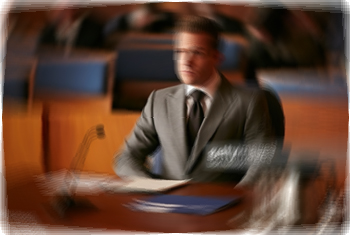 |
| Gabriel Macht as Harvey Specter |
|
Suits is an American legal drama television series
created and written by Aaron Korsh. The series premiered
on June 23, 2011, on the cable network USA, and is produced
by Universal Cable. Suits is set at a fictional law firm
in New York City. The focal point of the show follows
talented college dropout Mike Ross (Patrick J. Adams),
who initially works as a law associate for Harvey Specter
(Gabriel Macht), despite never actually attending law
school.[1] The show focuses on Harvey and Mike managing
to close cases while maintaining Mike's secret.[2]
Suits has been nominated for several awards since 2012,
with Gina Torres and Patrick J. Adams receiving individual
praise for their roles as Jessica Pearson and Mike Ross
respectively. The show was nominated for Best Drama at
the 2014 TV Guide Awards and Favorite Dramedy at the 2014
People's Choice Awards. Torres was nominated for Favorite
TV Actress in a Supporting Role at the 2012 ALMA Awards
and as Best Supporting Actress in Television at the 2013
Imagen Foundation Awards, while Adams was nominated for
Outstanding Performance by a Male Actor in a Drama Series
at the 2012 Screen Actors Guild Awards.
Season 6 premiered on July 1, 2016.[3] In August 2016,
the series was renewed for a 16-episode seventh season,[4]
which is set to premiere in 2017.
(Quote from wikipedia)
|
| <Million Dollar
Baby> |
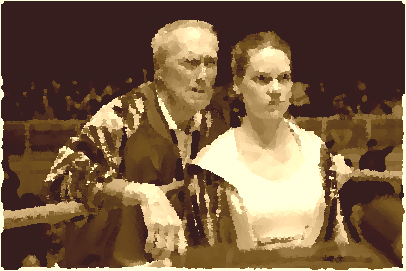 |
| Hilary Swank as Mary Margaret "Maggie"
Fitzgerald, a determined, aspiring boxer trained
up by Frankie Dunn. |
|
Margaret "Maggie" Fitzgerald, a waitress
from a Missouri town in the Ozarks, shows up in the Hit
Pit, a run-down Los Angeles gym owned and operated by
Frankie Dunn, an old, cantankerous boxing trainer. Maggie
asks Frankie to train her, but he initially refuses. Maggie
works out tirelessly each day in his gym, even after Frankie
tells her she's "too old" to begin a boxing
career at her age. Eddie "Scrap-Iron" Dupris,
Frankie's friend and employee-and the film's narrator-encourages
and helps her.
Frankie's prize prospect, "Big" Willie Little,
signs with successful manager Mickey Mack after becoming
impatient with Dunn's rejecting offers for a championship
bout. With prodding from Scrap and impressed with her
persistence, Frankie reluctantly agrees to train Maggie.
He warns her that he will teach her only the basics and
then find her a manager. Other than Maggie and his employees,
the only person Frankie has contact with is a local pastor,
with whom he spars verbally at daily Mass.
Before her first fight, Frankie leaves Maggie with a random
manager in his gym, much to her dismay; upon being told
by Scrap that said manager deliberately put her up against
his best girl (coaching the novice to lose) to give her
an easy win, Frankie rejoins Maggie in the middle of the
bout and coaches her instead to an unforeseen victory.
A natural, she fights her way up in the women's amateur
boxing division with Frankie's coaching, winning many
of her lightweight bouts with first-round knockouts. Earning
a reputation for her KOs, Frankie must resort to bribery
to get other managers to put their trainee fighters up
against her.
Eventually, Frankie risks putting her in the junior welterweight
class, where her nose is broken in her first match. Frankie
comes to establish a paternal bond with Maggie, who substitutes
for his estranged daughter. Scrap, concerned when Frankie
rejects several offers for big fights, arranges a meeting
for her with Mickey Mack at a diner on her 33rd birthday.
Out of loyalty, she declines. Frankie begrudgingly accepts
a fight for her against a top-ranked opponent in the UK,
where he bestows a Gaelic nickname on her. The two travel
Europe as she continues to win; Maggie eventually saves
up enough of her winnings to buy her mother a house, but
she berates Maggie for endangering her government aid,
claiming that everyone back home is laughing at her.
Frankie is finally willing to arrange a title fight. He
secures Maggie a $1 million match in Las Vegas, Nevada
against the WBA women's welterweight champion, Billie
"The Blue Bear", a German ex-prostitute who
has a reputation as a dirty fighter. Overcoming a shaky
start, Maggie begins to dominate the fight, but after
a round has ended, Billie knocks her out with an illegal
sucker punch from behind after the bell has sounded to
indicate the end of the round. Before Frankie can pull
the corner stool out of the way which was inappropriately
placed on its side by Frankie's assistant, Maggie lands
hard on it, breaking her neck and leaving her a ventilator-dependent
quadriplegic.
Frankie is shown experiencing the first three of the five
stages of grief: first seeking multiple doctors' opinions
in denial, then blaming Scrap in anger and later trying
to bargain with God through prayer.
In a medical rehabilitation facility, Maggie looks forward
to a visit from her family, but they arrive accompanied
by an attorney and only after having first visited Disneyland
and Universal Studios Hollywood; their only concern is
to transfer Maggie's assets to them. She orders them to
leave, threatening to sell the house and inform the IRS
of her mother's welfare fraud if they ever show their
faces again.
As the days pass, Maggie develops bedsores and undergoes
an amputation for an infected leg. She asks a favor of
Frankie: to help her die, declaring that she got everything
she wanted out of life. A horrified Frankie refuses, and
Maggie later bites her tongue repeatedly in an attempt
to bleed to death, but the medical staff saves her and
takes measures to prevent further suicide attempts. The
pastor Frankie has harassed for 23 years, Father Horvak,
warns him that he would never find himself again if he
were to go through with Maggie's wishes.
Frankie sneaks in one night, unaware that Scrap is watching
from the shadows. Just before administering a fatal injection
of adrenaline, he finally tells Maggie the meaning of
a nickname he gave her, Mo Chuisle (spelled incorrectly
in the film as "mo cuishle"): Irish for "my
darling, and my blood" (literally, "my pulse").
He never returns to the gym. Scrap's narration is revealed
to be a letter to Frankie's daughter, informing her of
her father's true character. The last shot of the film
shows Frankie sitting at the counter of a diner where
Maggie once took him.
(Quote from wikipedia)
|
| <The Godfather> |
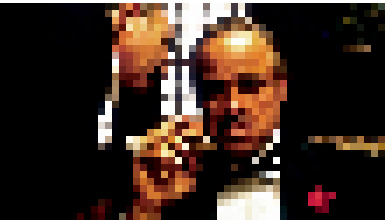 |
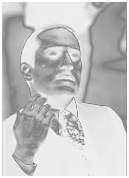 |
| Marlon Brando, in the title role, is Vito Corleone
(born Vito Andolini), the Don of the Corleone crime
family. A native Sicilian, he is married to Carmela
Corleone and the father of Tom (adoptive), Sonny,
Fredo, Michael, and Connie. |
Robert De Niro as Vito Corleone byThe Godfather
Part II |
|
The Godfather is a 1972 American crime film directed
by Francis Ford Coppola and produced by Albert S. Ruddy,
based on Mario Puzo's best-selling novel of the same name.
It stars Marlon Brando and Al Pacino as the leaders of
a fictional New York crime family. The story, spanning
1945 to 1955, chronicles the family under the patriarch
Vito Corleone, focusing on the transformation of Michael
Corleone (Pacino) from reluctant family outsider to ruthless
mafia boss.
Paramount Pictures obtained the rights to the novel before
it gained popularity for the price of $80,000. Studio
executives had trouble finding a director, as their first
few candidates turned down the position. They and Coppola
disagreed over who would play several characters, in particular
Vito and Michael. Filming was done on location and completed
earlier than scheduled. The musical score was composed
primarily by Nino Rota with additional pieces by Carmine
Coppola.
The film was the highest-grossing film of 1972 and was
for a time the highest-grossing film ever made. It won
the Oscars for Best Picture, Best Actor (Brando) and Best
Adapted Screenplay (for Puzo and Coppola). Its seven other
Oscar nominations included Pacino, James Caan, and Robert
Duvall for Best Supporting Actor and Coppola for Best
Director. It was followed by sequels The Godfather Part
II (1974) and The Godfather Part III (1990).
The Godfather is widely regarded as one of the greatest
films in world cinema and one of the most influential,
especially in the gangster genre. It was selected for
preservation in the U.S. National Film Registry of the
Library of Congress in 1990, being deemed "culturally,
historically, or aesthetically significant" and is
ranked the second-greatest film in American cinema (behind
Citizen Kane) by the American Film Institute.
(Quote from wikipedia)
|
|

